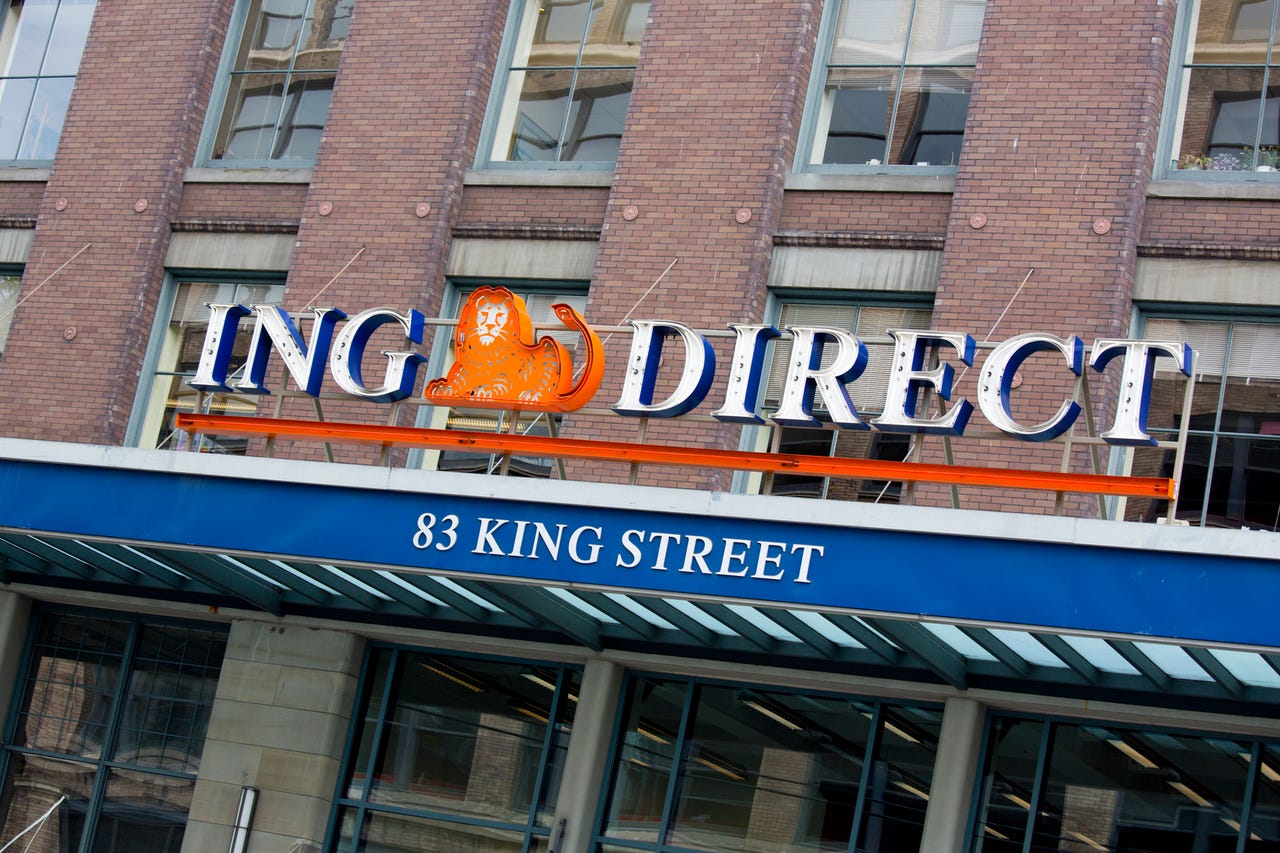After cutting through blue-collar jobs, how deep will tech bite into banking?

ING Bank is cutting jobs in response to the impact of new digitization strategies.
Computers and robots have long been seen as destroyers of blue-collar manufacturing jobs. But now automation seems to be threatening jobs across the white-collar workforce and into the banking industry.
At the beginning of October, ING Bank announced that it would eliminate 7,000 jobs from the Benelux region by 2021 in response to the impact of new digitization strategies.
Four days after ING made its announcement, its employees in Belgium shut down 200 offices for the day while they staged a protest in front of ING Belgium's head office in Brussels. They brought in union representatives to facilitate talks with the upper management.
Experts say FinTech poses a major threat to banks' business models, which have not adopted technology at the same pace as other legacy industries, such as the auto industry.
They argue digital technology will eventually replace the people working in banks, as banks turn to automation to stay relevant to a new generation of consumers.
A 2016 report from Citibank's Citi Global Perspectives & Solutions predicted that over the next 10 years, the US and Europe would lose 1.8 million jobs in the banking sector as a result of consumers using mobile banking technology and banks employing software that automates banking transactions for their clients.
"Bank branch levels are forecast to fall significantly given their high cost, the increased ubiquity of mobile internet, increasing FinTech competition and a sluggish revenue and profitability environment," the authors wrote.
ING employs 52,000 people worldwide, 14,700 people in the Netherlands, and 8,500 people in Belgium. The cuts will affect 2,300 jobs in the Netherlands and 3,500 jobs in Belgium.
ING has denied speculation that the job cuts are due to financial troubles at the company, but it predicts that the changes will allow it to save €900m ($986m) annually by 2021.
"We attracted over three million new customers, supported the economy by growing lending by around €56bn [$61bn] and strengthened our capital. We also promised to keep getting better and that is exactly what today's steps are aimed at. Our recent successes allow us to do so from a position of strength," said ING CEO Ralph Hammers in a statement on the day of the announcement.
Meanwhile, a string of banks in Europe and the US in the past year have announced job cuts to salvage their balance sheets. In October, Lloyds Banking Group announced that it would cut 9,000 jobs by the end of 2016 and an additional 3,000 jobs by the end of 2017 to save £1bn ($1.2bn).
Both ABN Amro Bank and Rabobank in the Netherlands have also announced downsizing programs that will eliminate thousands of jobs by 2020 and help contain costs. Bank of America announced 8,400 job cuts in June.
Along with ING, other banks are now overhauling their business models to incorporate new FinTech digital technology geared into their operations and products.
Barclays partnered with a bitcoin payments app in April, and Commonwealth Bank of Australia has been experimenting with trading using blockchain, the digital ledger that keeps track of every bitcoin transaction without the oversight of a third party.
Consumer interest in using digital technology could explain the financial troubles at other banks. Millennials tend to use online apps to execute the routine business transactions that used to be done in-person with a bank teller, and bank branches receive lower foot traffic as a result.
The Dutch sector specifically has relied too much on creating mobile products for its consumers, according to a 2016 report from KPMG analysts Brigitte Beugelaar and Alex Brouwer. Instead, the authors said, Dutch banks need to embrace software that can leverage customers' data.
They caution that FinTech startups have already started to take advantage of advances in big-data analytics technology and are gaining momentum among consumers; the most notable trend is robo-advising for wealth management.
"There is a substantial part of retail banking revenues at risk due to new incumbents that challenge the status quo. Although I don't believe that there will be a single startup, the Uber for banks, that will disrupt the industry, the competitive field has definitely become much more interesting," wrote Daniel Horn, founder of KPMG Innovative Startups, in the report.
However, more than automating customer service, Beugelaar and Brouwer said 90 percent of the 76 percent of banks that employed data analytics in their operations use it to improve their risk and fraud management programs.
They believe that banks have held back from utilizing customer data more fully because of consumer privacy concerns. Tech startups, on the other hand, may be less cautious about privacy issues.